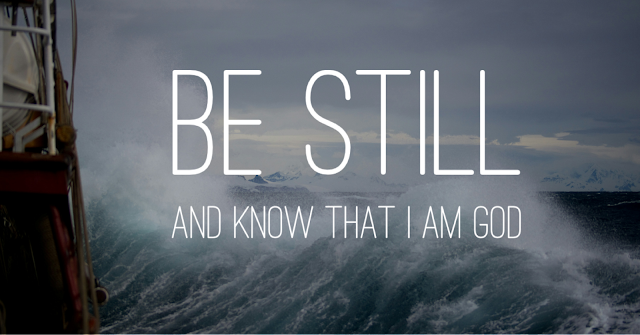Is The American Dream Still Just A Dream?
Happy Independence Day!
Independence is a word that's rich with promise and meaning. For many of us, it encapsulates the American Dream -- a vision of a nation that offers equality of opportunity for all, where upward mobility is only limited by one's willingness to work. We've been pursuing that dream for 244 years. Some of us believe we've achieved it. For others, it's a distant promise that never seems to get closer than the horizon.
I have a friend who thinks we're there. "White privilege is not a thing," she declares on Facebook. She believes she lives in a country where justice is blind, race is not a barrier, and all the disparities between White and Black communities are traceable to problematic elements of Black culture.
She's repeating a narrative that she's been sold. Just like my son was sold when he came home from a buddy's, overflowing with fury about Colin Kaepernick's taking a knee during the National Anthem. I seized the moment to educate him a little about the sorts of things that Kaepernick was protesting. I mentioned the Ku Klux Klan.
He looked at me in disbelief. "The Ku Klux Klan? They don't even exist anymore!" He actually thought that what he was saying was true.
Or there was the time in 2015 when a friend bemoaned the clamour over the fatal shooting by police of 19-year-old Quintonio Legrier and his bystander neighbor, Bettie Jones. Both were Black. My friend related that Legrier, a college student, had just started on medication for mental illness. His father called the police for help when the boy threatened him with a baseball bat. He wanted backup and help for his son. Instead, his son was killed and so, inexplicably, was the neighbor in the next apartment. But my friend resisted the idea that race had anything to do with the shootings.
I was deeply disturbed. It was less than a year since I'd called the police for help when my own son was in a mental health crisis. The police were calm, patient and reassuring with him, helping him get the care he needed. "But, if you can't rely on the police when you're Black," I asked, "who can you call for help?"
My friend brushed my concern aside. "These people call the police on each other all the time," she said, dismissively.
"These people?" I asked. "Am I one of these people?"
No, she insisted. That's not what she meant at all. But the fundamental difference between my family and Legrier's is my family is White.
That was the beginning of my understanding that Black people's experience with police could be very different from my own. It's led me to read devastating stories, to learn about the history of the Confederate statues, the Tulsa race massacre, many other horrifying realities. The disparity between my experience and that of my Black brothers and sisters is painful.
And that pain is another reason that it easy to deny white privilege. Recently, a friend shared with me her theory that George Floyd's death was faked by the media in order to influence the election. "I don't want to believe that," I said.
"So, you prefer to believe it's real?" she asked. She honestly did not know that this is a real current issue with an extensive, brutal history. She believed it was trumped up by the Left for political leverage.
It's possible to believe that when you've never, yourself, experienced race as a barrier. And it's tempting to believe it when you think the only alternative to denying white privilege is resorting to social engineering by Big Government. Because Big Government is fundamentally incompatible with independence. And independence is essential to the American Dream.
That dilemma is, I believe, at the root of conservative resistance to acknowledging the barriers that are stacked against racial and other minorities. And that resistance is exploited by white supremacists who couch their prejudices and their malicious agenda in the language of freedom.
We're being sold a false dichotomy: either the American Dream is real for everyone, or else all of the ills besetting underprivileged communities are traceable to systemic racism that it's up to the system to fix.
What if neither extreme is true? What if the issues are much more nuanced? What if we could quiet down enough to have honest and respectful conversations about them?
How much of the poverty, abuse and addiction experienced by Black people arises out of the breakdown of the family? How much of that breakdown is traceable to the forcible ripping apart of Black families by slave masters? To their sexual exploitation of Black women? How much has been perpetuated by racial prejudice that continues today?
How much does White America's discomfort with our slave-master past influence us to scoff at such concerns as that Aunt Jemima, as a brand mascot, presents a nostalgic image of slavery? How much is that discomfort responsible for our dismissing Black voices as ungrateful, overreactive and whining?
And how paternalistic and disrespectful is it for us to think we can "fix" the problems that plague Black Americans with government programs? What are the problems that White America perpetuates and how do we dismantle those without creating more? Which are the areas where we need to back off and allow Black communities to work out their own solutions?
These are difficult questions that need thoughtful answers. It's time to stop denying that the problem exists so we can start looking for solutions that move us forward. Because we're a nation that celebrates independence, and as long as there are barriers holding some Americans down, we haven't yet achieved the American Dream.
What thoughts do you have about what we can do to ensure that the American Dream of equal opportunity is realized for everyone? Let me know in the comments.




Comments
Post a Comment